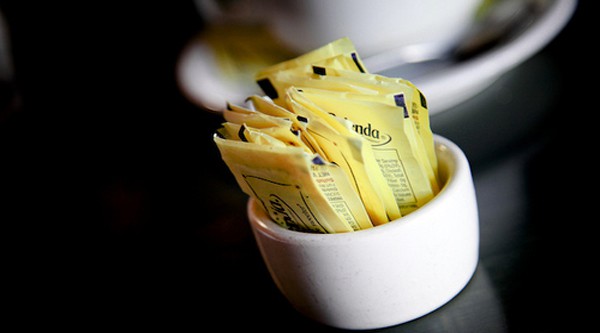Sugar is an important component of our balanced diet. However, we tend to take sugar more than required in the form of cakes, candies, sweets, or chocolates which are difficult to resist. High-sugar foods lead to several health complications such as obesity, diabetes, tooth decay, hypertension, and mineral deficiencies etc. To counteract the adverse effects, several sugar substitutes are available in the market that are comparatively sweeter and provide less calories.
Sugar substitutes are classified as natural or synthetic. Artificial sweetener is the synthetic compound and can be thousand times sweeter than regular sugar. It was first introduced in the diet soda in 1950s and since then they are widely used in a variety of sugar-free food products. For diabetics and diet conscious people artificial sweetener is a very good substitute for sugar as it provides almost negligible food energy.
Benefits
The major benefits of artificial sweeteners are:
1. Prevent tooth decay
Artificial sweeteners particularly sugar alcohols such as Xylitol can prevent dental plaque as it prevents sticking of the tooth decaying bacteria. Regular table sugar adheres to the tooth enamel thus providing a good substrate for the bacteria to grow. These bacteria produce acid as metabolic waste that can decay your tooth. Sugar alcohols cannot be fermented by tooth decaying bacteria and therefore they cannot survive to cause plaque formation.
2. Diabetes management
Carbohydrates are classified on the basis on glycemic response that refers to how quickly and how high the blood sugar rises after eating. For people suffering from diabetes, it is important to take food with low glycemic response. Glucose and sucrose have very high glycemic response. Artificial sweeteners such as saccharin and aspartame have low glycemic response as it metabolizes slowly while maintaining a stable blood sugar level.
3. Weight control
Artificial sweetener is really a blessing for those who want to control their weight without cutting down on their regular food items and quantity.
Concerns
While artificial sweeteners have proved beneficial to the human body, there has been some controversy regarding its complete harmless use. Some section of health experts argue that these sweeteners can also be harmful.
Some studies report that artificial sweeteners actually stimulate appetite in rats thus leading weight gain but it is not yet established in the case of human beings. The use of artificial sweetener as food additives is always controversial because of several health related concerns are associated with these products. Also, it is difficult to assess the consequences of using artificial sweeteners during pregnancy or childhood and therefore it is not recommended for children and pregnant women.
Common artificial sweeteners
US Food and Drug Administration (FDA) has approved only five artificial sweeteners till date. These are:
1. Saccharin
Saccharin is the first artificial sweetener that was discovered in 1879. It is the most studied and controversial artificial sweetener. In a research it was observed that saccharin can cause bladder cancer in rats. After that it became mandatory to put a warning label on all the products that contain saccharin but in 2000 US legislation passed an order to remove the warning. It is now determined safe by World Health Organization and European Union. It is three hundred to 500 times sweeter than sugar. Its trade name is Sweet n’ Low and has a bitter aftertaste.
2. Aspartame
First discovered in 1969 and was approved by FDA in 1981. It is almost 200 times sweeter than sucrose but at high temperature, it loses its sweetness. Person suffering from phenylketonuria must avoid taking aspartame as it contains amino acids. The trade name of aspartame is NutraSweet.
3. Neotame
It was discovered in 1990 and got approval from FDA in 2002. It is a derivative of aspartame but it is safe to be used by the patients of phenylketonuria and can be used for bakery products. Astonishingly, it is 8000 times sweeter than sugar.
4. Sucralose
Sucralose is another artificial sweetener that was discovered in 1976. Sucralose got FDA approval in 1988 under the trade name Splenda. It is not absorbed in the digestive tract and therefore adds no calories. It is 600 times sweeter than sugar.
5. Acesulfame potassium
The compound was discovered in 1967 and got FDA approval in 1988. It does not provide any calorie and can be used for cooking purposes. Like saccharin it has bitter aftertaste and is 200 times sweeteer than sucrose.
Acceptable daily intake (ADI) of these artificial sweeteners is also established by FDA. As it says too much of anything can be bad, it equally applies on sugar as well as artificial sweetener. It is better to take these products in moderation so that you can enjoy candies without fearing of weight gain and diabetes.




